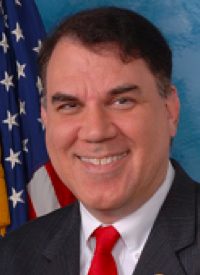
One aspect of the behemoth finance reform bill now being debated in the Senate that has not attracted any mainstream media attention is its limitations on congressional power over the Federal Reserve. In particular, the bill in its current form would overturn legislation, passed by the House late last year, that would give Congress the power and, indeed, the legal obligation, to audit the Fed.
Representative Alan Grayson, a co-author (with Congressman Ron Paul) of House legislation to audit the Fed, told Zero Hedge, a news feed for options traders, that the Senate finance reform bill retains only a few tepid remnants of authority to audit America’s central bank:
The House bill grants the GAO the authority to audit the Fed, and then releases that information to Congress with a six-month delay, to prevent traders from gaming the system.
The Senate version only allows the GAO to audit a certain part of the Federal Reserve, its emergency lending facilities. The GAO already has some of that authority. Amazingly, the Senate version forces the GAO to withhold this information from the public, and Congress, for as long as the Federal Reserve chooses….
The Senate language does not allow audits of the mortgage backed security purchase program, a $1.25 trillion program that at this point comprises the bulk of the Fed’s balance sheet. This program includes Freddie and Fannie backed debt.
The Senate language does not allow audits of possible losses on foreign currency swap lines, of which there were more than $500 billion at the height of the crisis. This includes unlimited credit lines granted to central banks all over the world, solely through at the discretion of Federal Reserve and without the input of any elected official or the State Department.
?The Senate language does not allow audits of open market operations, where there is ample room for errors, market manipulation, and insider trading violations….
In the Senate version, all audits must remain redacted. The GAO can’t even tell Congress to whom the Fed is lending money, the amounts it is lending, or any details about collateral or assets held in connection with any credit facility.
These and similar provisions limiting the power of Congress over the Fed to a few token competencies, are found in section 714 of the Senate bill, entitled “Audit of Financial Institutions Examination Council.” In all likelihood, they constitute the real meat of the Dodd legislation, and may well be a major reason for the sudden urgency with which this bill is being peddled. Last year’s push to give Congress new ascendancy over the Federal Reserve constituted an unacceptable challenge to America’s financial and banking elites, which this bill is intended to answer.
The Federal Reserve has managed to survive for almost 100 years because of its — and its backers’ — insistence on absolute secrecy and freedom from any kind of public or private scrutiny. This condition — defended as “independence” — is responsible for public ignorance of the Federal Reserve and how it manipulates the money supply to the advantage of the big banks, the financially well-connected, and, of course, the political class.
Open market operations, for example, are the Fed’s (and other central banks’) major tool for inflating the money supply — yet according to the new Senate finance bill, these operations would remain off limits to congressional scrutiny. So likewise with the operation of foreign currency swap lines, for which greater transparency — one might suppose — would be invaluable to Americans concerned about the eroding value of the dollar. Yet all of the critical operations and so-called assets of the Federal Reserve would remain discreetly shielded from the eyes of Congress and the public, ensuring a continuation of business as usual at the Fed.
Photo: Rep. Alan Grayson



